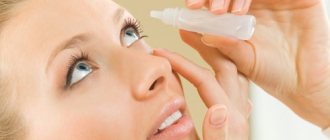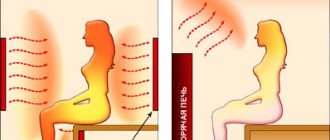Pregnancy is a desired, happy state in which a woman will spend quite a long time - about 40 weeks. The lifestyle, of course, is changing, because now there are two of you, or maybe three, and additional responsibility for a new developing life appears. You can learn about the benefits of bath procedures from many sources, but I would like to dwell separately on contraindications and features during pregnancy.
Starting to visit a bathhouse during pregnancy, if you have not done this before or visited occasionally, is not recommended, the load may be too great, and the body’s reaction is unpredictable, various complications may arise, including loss of pregnancy. During pregnancy, the functioning of many organs and systems, including the cardiovascular system, changes, so additional stress, including bath procedures, should be treated with great caution.
Staying in a bath causes significant changes in the activity of the cardiovascular system. Thus, the heart rate increases and reaches 100–160 beats per minute, i.e. increases by 60 - 70% compared to the indicators before visiting the bathhouse. The release of blood from the chambers of the heart increases 1.5–1.7 times. In this case, the blood flow time is reduced by almost 2 times. There is a rapid distribution of blood in various organs. When visiting a steam room, especially the first time, blood pressure increases. Pouring cold water sharply reduces the heart rate by 30 - 35 beats per minute or more. Whipping with a broom during hyperthermia puts additional stress on the cardiovascular system. At this time, the heart rate increases even more.
Even the most experienced steamers should not visit the bathhouse in the first trimester, because it is during this period that the placenta is formed and all the baby’s organs are formed. Additional physical and thermal stress during these periods can provoke the threat of miscarriage and even lead to miscarriage. At later stages (in the third trimester), the risk of bath procedures is the possible development of premature labor, disruption of the functioning of the placenta, up to abruption. In any case, before visiting the bathhouse, you should consult your doctor and find out if you have any contraindications to thermal stress. Visiting the bathhouse is contraindicated during pregnancy with complications, for example, with the threat of miscarriage, high blood pressure, placenta previa, edema and preeclampsia, fetal growth retardation, etc.
Recommendation 1: stop taking medications
The most important rule for women in the first trimester of pregnancy is to avoid taking medications. The medications you took before pregnancy cannot be used in the first trimester of gestation.
In the early stages of pregnancy, the formation of fetal organs occurs, and any drug can negatively affect this process. Therefore, before you swallow a tablet, powder or syrup, think carefully and be sure to consult with your obstetrician-gynecologist. If you have any chronic disease that requires medication, you should also consult a specialist.
Working conditions
Already at the stage of preparation for pregnancy, contact of future parents with occupational hazards in the working environment and factors of the labor process is undesirable. Harmful factors in the working environment include toxic chemicals (this is important for workers in the chemical and pharmaceutical industries), ionizing radiation, static electricity, lighting, biological factors (contact with antibiotics, hormones, other drugs, for example, among workers in pharmaceutical production). For men, harmful factors include working in a hot shop or being in rooms with air temperatures above 37 degrees. For expectant mothers, night shift work, frequent flights, and climate changes can have a negative impact on the body.
Also, unfavorable working conditions include irrational organization of the workplace (inconvenient, non-ergonomic furniture, insufficient lighting, improper installation of office equipment in violation of safety regulations, absence or insufficient mechanization of work), as well as a negative psycho-emotional climate in the workplace.
The pregnancy period is perhaps the most important period in the life of a married couple, therefore preparation for it should be very responsible, because the health of mother and baby depends on it.
Recommendation 2: Avoid strenuous physical activity
Is it possible to play sports in the first trimester? Not only is it possible, but it is necessary! Exercising during pregnancy is the key to excellent mood, good physical shape, normal weight, absence of constipation and swelling. In addition, sports allows you to prepare your body for the upcoming birth.
If before pregnancy you did Pilates, yoga, or swimming, then in the first trimester of gestation you don’t have to give up your favorite activities. But it’s not worth learning new sports. Unusual exercises and loads for the body can negatively affect the course of pregnancy.
Heavy physical activity is prohibited in both early and late stages of pregnancy. For example, you cannot jump into water from a tower, ride horses, or go rock climbing. If you were previously into running, then during pregnancy it is better to replace running with brisk walking.
Recommendation 3: Avoid long flights
Perhaps in the first trimester of pregnancy you will want to go on vacation to distant countries. For example, to Cuba, Sri Lanka, Tanzania. Vacations in exotic countries are of course good, but your health and the safety of your unborn baby should come first!
During a flight, there is a very large pressure drop, and how your body will bear this load is anyone’s guess. It is likely that everything will go fine, but some problems are possible:
- exacerbation of toxicosis;
- frequent urge to urinate;
- increased fatigue;
- problems with the digestive system;
- dizziness.
In addition, during a long flight you will be constantly sitting. And prolonged sitting can lead to lymphostasis - swelling of the soft tissues. In this regard, it is quite reasonable to replace long flights with shorter travel routes.
Before your flight, be sure to go to an appointment with an obstetrician-gynecologist, who will assess your condition and accurately answer the question: can you fly or not. If you have certain health problems, flying is contraindicated for pregnant women. For example, air travel is prohibited if you have severe anemia.
When going on holiday abroad, do not forget that in many countries in Europe and Asia there is a risk of contracting measles and rubella. And if you did not have measles or rubella as a child or did not complete the full course of vaccination against them, then if you become infected, you will face serious troubles. For example, infection with rubella in the first trimester increases the risk of miscarriage by 4 times.
Recommendation 4: exclude spicy, salty, raw foods from your diet
The importance of proper nutrition in early gestation cannot be overemphasized. The growth and development of your unborn baby largely depends on how you eat. And there are a number of foods that pregnant women should avoid. These include:
- Spicy, salty, smoked foods that put a lot of stress on the liver and kidneys. During pregnancy, these organs already have a hard time. The liver experiences double load due to hormonal changes. In the kidneys in the first trimester, blood flow increases and glomerular filtration increases. Therefore, you should not additionally burden the liver and kidneys with poor nutrition.
- Blue cheese, raw eggs, meat; fish. These products may contain pathogenic bacteria. For the same reason, you should not consume raw milk. Even if you buy milk from a trusted store, it is better to boil it before use.
- Carbonated drinks, which negatively affect the functioning of the intestines, kidneys, and gallbladder, cause bloating and stool upset.
- Coffee. The allowed limit is one cup of coffee per day. Drinking more coffee can increase the muscle tone of the uterus and cause miscarriage.
- Alcohol. Drinking alcohol during pregnancy leads to oxygen starvation of the fetus, delaying its growth and development. Just 3-4 small doses of alcohol can cause alcohol syndrome in the fetus, leading to serious mental and physical abnormalities.
Hygiene after childbirth
It is generally accepted that the postpartum period lasts about 6-8 weeks, until all organs and systems of the body return to their previous state. After childbirth, a woman is very vulnerable to infections, because the cervix remains open for a long time, and the internal genital organs sometimes appear as one large wound.
The baby, in turn, is also very vulnerable to infections at first. In order to avoid various kinds of complications, it is very important for mom to follow the rules of intimate hygiene.
General recommendations:
- wash your hands often, they should always be clean;
- instead of washing your hands with soap, use sterilliums more often - antiseptic gels or balms (unlike soap, they actually destroy 99% of bacteria, and good sterilliums also maintain the Ph factor of the skin);
- take a shower at least twice a day;
- change your shirt every day to a clean one;
- towels for hands, mammary glands and intimate hygiene must be strictly individual, washed at 90 degrees and ironed with a hot iron on both sides;
- go to the toilet every 3-4 hours, even if you don’t feel the urge (sensation after childbirth may be temporarily absent, and signals to the brain about the fullness of the bladder or rectum may not be received);
wash yourself after each toilet (do it with a clean hand, from front to back);- After washing, the skin of the perineum should be dried by blotting a clean towel or diaper;
- do not take a bath or visit the sauna in the first 2-3 weeks after birth;
- in case of exacerbation of hemorrhoids after childbirth, you should not use toilet paper after visiting the toilet, it is better to simply wash yourself with lukewarm water;
- if you received stitches after childbirth, try not to touch them with your hands at first, and when washing, simply direct a weak stream of water to the area of the stitches; also be sure to undergo antiseptic procedures for stitches;
- Do not douche under any circumstances during the postpartum period without a doctor’s recommendation, as this may cause a decrease in local protection and increase the likelihood of infection.
Lingerie
The following basic requirements apply to underwear during the postpartum period:
it should allow air to pass through well (preferably it should be made of natural fabrics, not synthetics); do not adhere too tightly to the skin, especially the genital organs, and do not create a “greenhouse effect”, do not injure, especially the seams; underwear should be comfortable and not restrict movement.
There are now disposable underwear on sale that are specially designed for use during the postpartum period. Most often, maternity hospitals are prohibited from bringing your own underwear - only disposable underwear is allowed.
Linen change frequency:
- the shirt must be changed daily;
- We change panties once a day or even more often;
- bra at least once every 3-5 days;
- change bra pads as they get wet so you don’t have to change your bra every day;
- It is better to change bed linen at least once a week or use special disposable linen for the postpartum period;
- The diaper, which is laid on top of the sheet in the maternity hospital, is changed daily.
Sanitary napkin
If the use of pads is allowed in the maternity hospital (some maternity hospitals do not allow the use of pads in the first days after birth, but only loose underwear to hold the diaper in place), use highly absorbent pads or buy special postpartum pads. They should be changed as they become saturated with secretions, at least once every 4 hours. Ideally after every visit to the toilet. It is especially important to follow this rule in the first days after childbirth, while lochia comes out (they are a very good breeding ground for bacteria). If pads are not allowed in the maternity hospital, then, apparently, you will be given special diapers. This is done so that the doctor can easily determine the condition of the woman in labor by the nature of the discharge.
Intimate hygiene products
The following basic requirements apply to intimate hygiene products during the postpartum period:
- good skin cleansing, without irritation;
- absence of allergic reactions;
- antibacterial and anti-inflammatory protection;
- neutral PH factor.
Baby soap or soap with an antibacterial effect may be perfect for these purposes. Special products for intimate hygiene are also suitable. It is better to check their effects on the skin before giving birth to prevent an allergic reaction to them.
Important! Do not use household soaps for intimate hygiene.
Breast care
It is not at all necessary to wash your breasts too often, maximum 1-2 times a day, otherwise the protective layer of the nipples will suffer greatly and they will crack. Wash your breasts with your hands without washcloths or sponges.
Before and after feeding, express a few drops of milk, this is a good prevention of cracked nipples. After lubricating the nipple with milk after feeding, let it dry a little in the open air. In addition, for cracks in the delicate skin of the nipples, use creams that your doctor recommends.
Mother’s hygiene procedures during and after childbirth occupy a significant part of the day. The child’s hygiene procedures are even more important. But these are necessary conditions for raising a healthy and strong baby. Therefore, be prepared for this and do not neglect them.
Recommendation 5: Do not wear tight clothes and shoes
In the first trimester of pregnancy, a woman's silhouette changes slightly. Because of this, many pregnant women continue to wear tight-fitting clothes to highlight their figure. However, even in the early stages of pregnancy, it is better to choose loose clothing that does not compress soft tissues, the abdominal area, and mammary glands. Wearing tight clothes can impair blood circulation, lead to lymph stagnation, cause fatigue, and increase the unpleasant symptoms of toxicosis.
What kind of shoes should pregnant women wear? Choose comfortable shoes with solid soles. During pregnancy, the center of gravity gradually changes, and when wearing shoes with heels, the load on the lumbosacral region increases.
If we talk about the cold season, it is better to replace shoes and boots that are very tight on the calf muscles or feet with looser shoes. As with clothing, this will help avoid poor circulation and lymph stagnation.
Recommendation 6: avoid hypothermia and overheating of the body
If before pregnancy you liked to take a steam bath or, conversely, plunge into an ice hole, then during pregnancy you need to reconsider your habits. Overheating and hypothermia are dangerous for the fetus, especially in the first trimester of gestation.
Hypothermia impairs blood circulation, which can cause fetal hypoxia. Also, do not forget that during pregnancy, immunity decreases, which means the risk of colds increases.
Overheating of the body in the early stages of pregnancy negatively affects the formation of the fetus and increases the risk of miscarriage. Therefore, in the first trimester of gestation it is better to avoid baths and saunas. In the second and third trimester, if there are no contraindications, you can visit the sauna and bathhouse.
Recommendation 7: Do not use hair and nail dyes with toxic substances
Of course, even during the period of bearing a child, every woman wants to remain beautiful. Therefore, pregnant women often have a question: is it possible to dye your hair and get a manicure during pregnancy?
You can dye your hair during pregnancy, but you need to choose gentle organic dyes made from natural ingredients. Inorganic paints contain ammonia and other harmful substances that can cause allergies in a pregnant woman and increase symptoms of toxicosis.
The situation with manicure is more complicated. A manicure always begins with removing old nail polish. Remove varnish with acetone and other substances that have a very strong odor. This can cause an allergic reaction in you, even if you were not allergic to acetone before pregnancy. The thing is that during pregnancy, immunity decreases, which means the likelihood of allergic reactions increases. If you still decide to go to the salon for a manicure, then ask the master for a mask that will protect the respiratory tract from harmful substances.
For manicure, you should also choose gentle varnishes that do not contain toxic substances - phosphoric acids, acetone alcohols, formaldehyde.
Double beauty
Pregnancy is a wonderful time in a woman’s life. But often expectant mothers, as well as young mothers breastfeeding, are upset by the presence of many restrictions in all areas of life - from nutrition to sports and recreation. In particular, there are many prohibitions in the matter of self-care. But you really want to be beautiful during this magical period of your life, and modern women are usually not ready to just give up going to a cosmetologist and using a variety of cosmetics for several years.
Fortunately, it is not at all necessary to wrap yourself in a burqa for this entire period and use exclusively baby cream and a cucumber mask. Let's, together with the cosmetologist of the EuroMed Clinic, Svetlana Mikhailovna Lexandrova, figure out what is actually prohibited during this period and what is not.
Recommendation 8: Accept your pregnancy and your new role as “I am a mother”
In the first trimester of pregnancy, hormonal changes occur in the female body, which affects the functioning of the nervous system. In this regard, a pregnant woman may experience conditions and emotions such as tearfulness, anxiety, and excessive sensitivity. And some pregnant women even feel guilty before others for their whims over trifles, frequent emotional breakdowns.
Feelings of guilt are a negative attitude that must be gotten rid of. After all, such an emotion will cause you psychological discomfort.
Irritability in the early stages of pregnancy is nothing more than an attempt by the female psyche to fully realize and accept the fact of motherhood. And the sooner you accept your pregnancy and your new role as a mother, the sooner your calmness, good mood will return, and you will stop feeling guilty before others.
Stress before pregnancy
In the modern world, it is almost impossible to completely avoid stressful situations. However, the impact of stress on health and reproductive function is difficult to underestimate. Already at the stage of pregnancy planning, chronic stress can cause significant pathological conditions. Short-term, moderate stress exposure mobilizes the body's defenses aimed at eliminating the stimulus and is, to some extent, training for the human body. However, under the influence of extremely strong factors or chronic exposure, from a protective, adaptive reaction, stress passes into a pathological phase - the phase of distress, or “bad” stress, in which the body’s compensatory reactions fail. In this case, a variety of symptoms arise, the leading of which are increased irritability, nervousness, headache, digestive disorders and others. In such situations, depression, various chronic diseases develop - cardiovascular, nervous system, gastrointestinal tract, and a decrease in immunity occurs. Men may develop sexual dysfunction against the background of chronic stress; women may experience problems with the menstrual cycle and, as a result, infertility, that is, the inability to conceive a child.
During pregnancy planning, it is advisable to avoid stressful situations if possible and learn to be calmer about everything that happens. You can master relaxation techniques, self-hypnosis, and attend psychological trainings. Positive emotions received from watching good films, plays, attending concerts of your favorite music contribute to the production of endorphins, improve mood and well-being, distract and, accordingly, neutralize the adverse effects of stress. Physical activity (sports, dancing, walking, cycling, skiing, swimming) contributes to the production of pleasure hormones that have an anti-stress effect. It is better to prefer watching programs on television or communicating on the Internet to walking in the fresh air and meeting with friends. Often, communication on various women's forums, where stories of unsuccessful pregnancies or childbirths are relished, can become a source of stress. Such communications should be avoided. Also, do not be upset or panic if the desired pregnancy does not occur on the first try; sometimes it takes 3 to 6 months for completely healthy parents to conceive.











